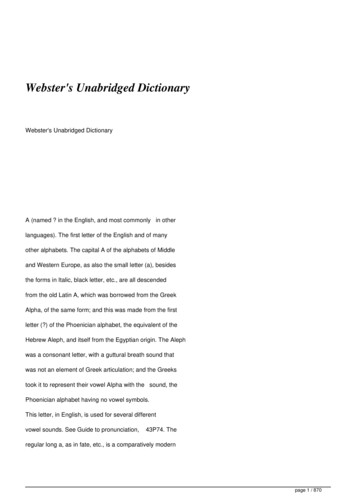
Transcription
Webster's Unabridged DictionaryWebster's Unabridged DictionaryA (named ? in the English, and most commonly in otherlanguages). The first letter of the English and of manyother alphabets. The capital A of the alphabets of Middleand Western Europe, as also the small letter (a), besidesthe forms in Italic, black letter, etc., are all descendedfrom the old Latin A, which was borrowed from the GreekAlpha, of the same form; and this was made from the firstletter (?) of the Phoenician alphabet, the equivalent of theHebrew Aleph, and itself from the Egyptian origin. The Alephwas a consonant letter, with a guttural breath sound thatwas not an element of Greek articulation; and the Greekstook it to represent their vowel Alpha with the sound, thePhoenician alphabet having no vowel symbols.This letter, in English, is used for several differentvowel sounds. See Guide to pronunciation, 43P74. Theregular long a, as in fate, etc., is a comparatively modernpage 1 / 870
sound, and has taken the place of what, till about the earlypart of the 17th century, was a sound of the quality of(as in far).2. (Mus.) The name of the sixth tone in the model majorscale (that in C), or the first tone of the minor scale,which is named after it the scale in A minor. The secondstring of the violin is tuned to the A in the treble staff.P A sharp (A#) is the name of a musical tone intermediatebetween A and B.P A flat (A?) is the name of a toneintermediate between A and G.A per se (L. per se by itself), one pre minent; anonesuch. [Obs.]O fair Creseide, the flower and A per seOf Troy and Greece.Chaucer.A (? emph. ?). 1. [Shortened form of an. AS. ? one. SeeOne.] An adjective, commonly called the indefinite article,and signifying one or any, but less emphatically. At abirth8; In a word8; At a blow8. Shak. It is placed beforenouns of the singular number denoting an individual object,or a quality individualized, before collective nouns, andalso before plural nouns when the adjective few or thephrase great many or good many is interposed; as, a dog, ahouse, a man; a color; a sweetness; a hundred, a fleet, aregiment; a few persons, a great many days. It is used foran, for the sake of euphony, before words beginning with aconsonant sound [for exception of certain words beginningwith h, see An]; as, a table, a woman, a year, a unit, apage 2 / 870
eulogy, a ewe, a oneness, such a one, etc. Formally an wasused both before vowels and consonants.2. [Originally the preposition a (an, on).] In each; toor for each; as, twenty leagues a day8, a hundred pounds ayear8, a dollar a yard8, etc.A (?), prep. [Abbreviated form of an (AS. on). See On.]1. In; on; at; by. [Obs.] A God's name.8 Torn a pieces.8 Stand a tiptoe.8 A Sundays8 Shak. Wit that men have now adays.8 Chaucer. Set them a work.8 Robynson (More's Utopia)2. In process of; in the act of; into; to; P used withverbal substantives in Ping which begin with a consonant.This is a shortened form of the preposition an which wasused before the vowel sound); as in a hunting, a building, abegging. Jacob, when he was a dying8 Heb. xi. 21. We'll abirding together.8 It was a doing.8 Shak. He burst out alaughing.8 Macaulay. The hyphen may be used to connect awith the verbal substantive (as, aPhunting, aPbilding) orthe words may be written separately. This form of expressionis now for the most part obsolete, the a being omitted andthe verbal substantive treated as a participle.A. [From AS. of off, from. See Of.] Of. [Obs.] The nameof John a Gaunt.8 What time a day is it ?8 Shak. It's sixa clock.8 B. Jonson.A. A barbarous corruption of have, of he, and sometimesof it and of they. So would I a done8 A brushes his hat.8Shak.A. An expletive, void of sense, to fill up the meterA merry heart goes all the day,page 3 / 870
Your sad tires in a milePa.Shak.AP. A, as a prefix to English words, is derived fromvarious sources. (1) It frequently signifies on or in (froman, a forms of AS. on), denoting a state, as in afoot, onfoot, abed, amiss, asleep, aground, aloft, away (AS. onweg),and analogically, ablaze, atremble, etc. (2) AS. of off,from, as in adown (AS. ofdne off the dun or hill). (3) AS.? (Goth. usP, urP, Ger. erP), usually giving an intensiveforce, and sometimes the sense of away, on, back, as inarise, abide, ago. (4) Old English yP or iP (corrupted fromthe AS. inseparable particle geP, cognate with OHG. gaP,giP, Goth. gaP), which, as a prefix, made no essentialaddition to the meaning, as in aware. (5) French (L. adto), as in abase, achieve. (6) L. a, ab, abs, from, as inavert. (7) Greek insep. prefix ? without, or privative, not,as in abyss, atheist; akin to E. unP.Besides these, there are other sources from which theprefix a takes its origin.A 1 (?). A registry mark given by underwriters (as atLloyd's) to ships in firstPclass condition. Inferior gradesare indicated by A 2 and A 3.A 1 is also applied colloquially to other things toimply superiority; prime; firstPclass; firstPrate.XAam (?), n. [D. aam, fr. LL. ama; cf. L hama a waterbucket, Gr. ?] A Dutch and German measure of liquids,varying in different cities, being at Amsterdam about 41wine gallons, at Antwerp 36 , at Hamburg 38,. [Written alsopage 4 / 870
Aum and Awm.]XAard6Pvark7 (?), n. [D., earthPpig.] (Zol.) Anedentate mammal, of the genus Orycteropus, somewhatresembling a pig, common in some parts of Southern Africa.It burrows in the ground, and feeds entirely on ants, whichit catches with its long, slimy tongue.XAard6Pwolf7 (?), n. [D, earthPwolf] (Zol.) Acarnivorous quadruped (Proteles Lalandii), of South Africa,resembling the fox and hyena. See Proteles.AaOron6ic (?), AaOron6icOal (?),} a. Pertaining toAaron, the first high priest of the Jews.Aar6on's rod7 (?). [See Exodus vii. 9 and Numbers xvii.8] 1. (Arch.) A rod with one serpent twined around it, thusdiffering from the caduceus of Mercury, which has two.2. (Bot.) A plant with a tall flowering stem; esp. thegreat mullein, or hagPtaper, and the goldenProd.AbP (?). [Latin prep., etymologically the same as E. of,off. See Of.] A prefix in many words of Latin origin. Itsignifies from, away , separating, or departure, as inabduct, abstract, abscond. See AP(6).XAb (?), n. [Of Syriac origin.] The fifth month of theJewish year according to the ecclesiastical reckoning, theeleventh by the civil computation, coinciding nearly withAugust.W.Smith.XAb6aOca (?), n. [The native name.] The ManilaPhempplant (Musa textilis); also, its fiber. See Manila hempunder Manila.page 5 / 870
AObac6iOnate (?), v.t. [LL. abacinatus, p.p. ofabacinare; ab off bacinus a basin.] To blind by a redPhotmetal plate held before the eyes. [R.]AObac7iOna6tion (?), n. The act of abacinating. [R.]XAb7aOcis6cus (?), n. [Gr.?, dim of ?. See Abacus.](Arch.) One of the tiles or squares of a tessellatedpavement; an abaculus.Ab6aOcist (?), n. [LL abacista, fr. abacus.] One whouses an abacus in casting accounts; a calculator.AOback6 (?), adv. [Pref. aP back; AS. on ? at, on, ortoward the back. See Back.] 1. Toward the back or rear;backward. Therewith aback she started.8Chaucer.2. Behind; in the rear.Knolles.3. (Naut.) Backward against the mast;Psaid of the sailswhen pressed by the wind.Totten.To be taken aback. (a) To be driven backward against themast;Psaid of the sails, also of the ship when the are thusdriven. (b) To be suddenly checked, baffled, or discomfited.Dickens.Ab6ack (?), n. An abacus. [Obs.]B.Jonson.AbOac6tiOnal (?), a. [L. ab E. actinal.] (Zol.)Pertaining to the surface or end opposite to the mouth in aradiate animal;Popposed to actinal. The aboral or abactinalarea.8page 6 / 870
L.Agassiz.AbOac6tion (?), n. Stealing cattle on a large scale.[Obs.]AbOac6tor (?), n. [L., fr. abigere to drive away;ab agere to drive.] (Law) One who steals and drives awaycattle or beasts by herds or droves. [Obs.]XAObac6uOlus (?), n. ; pl. Abaculi (?). [L., dim. ofabacus.] (Arch.) A small tile of glass, marble, or othersubstance, of various colors, used in making ornamentalpatterns in mosaic pavements.Fairholt.Ab6aOcus (?), n.; E. pl. Abacuses ; L. pl. Abaci (?).[L. abacus, abax, ?] 1. A table or tray strewn with sand,anciently used for drawing, calculating, etc. [Obs.]2. A calculating table or frame; an instrument forperforming arithmetical calculations by balls sliding onwires, or counters in grooves, the lowest line representingunits, the second line, tens, etc. It is still employed inChina.3. (Arch.) (a) The uppermost member or division of thecapital of a column, immediately under the architrave. SeeColumn. (b) A tablet, panel, or compartment in ornamented ormosaic work.4. A board, tray, or table, divided into perforatedcompartments, for holding cups, bottles, or the like; a kindof cupboard, buffet, or sideboard.Abacus harmonicus (Mus.), an ancient diagram showing thestructure and disposition of the keys of an instrument.page 7 / 870
Crabb.Ab6aOda (?), n. [Pg., the female rhinoceros.] Therhinoceros. [Obs.]Purchas.AObad6don (?), n. [Heb. ? destruction, abyss, fr. ? tobe lost, to perish.] 1. The destroyer, or angel of thebottomless pit; P the same as Apollyon and Asmodeus.2. Hell; the bottomless pit. [Poetic]In all her gates, Abaddon ruesThy bold attempt.Milton.AObaft6 (?), prep. [Pref. aPon OE. baft, baften,biaften, AS.?; be by ? behind. See After, Aft, By.](Naut.) Behind; toward the stern from; as, abaft thewheelhouse.Abaft the beam. See under Beam.AObaft6, adv. (Naut.) Toward the stern; aft; as, to goabaft.AObai6sance (?), n. [For obeisance; confused with F.abaisser, E. abase] Obeisance. [Obs.]Jonson.AObai6ser (?), n. Ivory black or animal charcoal.Weale.AObaist6 (?), p.p. Abashed; confounded; discomfited.[Obs.]Chaucer.page 8 / 870
AbOal6ienOate (?), v.t. [L. abalienatus, p.p. ofabalienare; ab alienus foreign, alien. See Alien.] 1.(Civil Law) To transfer the title of from one to another; toalienate.2. To estrange; to withdraw. [Obs.]3. To cause alienation of (mind).Sandys.AbOal7ienOa6tion (?), n. [L. abalienatio: cf. F.abalianation.] The act of abalienating; alienation;estrangement. [Obs.]XAb7aOlo6ne (?), n. (Zol.) A univalve mollusk of thegenus Haliotis. The shell is lined with motherPofPpearl, andused for ornamental purposes; the seaPear. Several largespecies are found on the coast of California, clingingclosely to the rocks.AOband6 (?), v.t. [Contracted from abandon.]1. To abandon. [Obs.]Enforced the kingdom to aband.Spenser.2. To banish; to expel. [Obs.]Mir. for Mag.AOban6don (?), v.t. [imp. & p.p. Abandoned (?); p.pr. &vb.n. Abandoning .] [OF. abandoner, F.abandonner; a (L.ad) bandon permission, authority, LL. bandum, bannum, publicproclamation, interdiction, bannire to proclaim, summon: ofGermanic origin; cf. Goth. bandwjan to show by signs, todesignate OHG. banproclamation. The word meant to proclaim,put under a ban, put under control; hence, as in OE., topage 9 / 870
compel, subject, or to leave in the control of another, andhence, to give up. See Ban.] 1. To cast or drive out; tobanish; to expel; to reject. [Obs.]That he might . abandon them from him.Udall.Being all this time abandoned from your bed.Shak.2. To give up absolutely; to forsake entirely ; torenounce utterly; to relinquish all connection with orconcern on; to desert, as a person to whom one owesallegiance or fidelity; to quit; to surrender.Hope was overthrown, yet could not be abandoned.I. Taylor.3. Reflexively : To give (one's self) up without attemptat selfPcontrol ; to yield (one's self) unrestrainedly ; Poften in a bad sense.He abandoned himself . to his favorite vice.Macaulay.4. (Mar. Law) To relinquish all claim to; P used when aninsured person gives up to underwriters all claim to theproperty covered by a policy, which may remain after loss ordamage by a peril insured against.Syn.P To give up; yield; forego; cede; surrender;resign; abdicate; quit; relinquish; renounce; desert;forsake; leave; retire; withdraw from. P To Abandon, Desert,Forsake. These words agree in representing a person asgiving up or leaving some object, but differ as to the modeof doing it. The distinctive sense of abandon is that ofpage 10 / 870
giving up a thing absolutely and finally; as, to abandonone's friends, places, opinions, good or evil habits, ahopeless enterprise, a shipwrecked vessel. Abandon is morewidely applicable than forsake or desert. The Latinoriginal of desert appears to have been originally appliedto the case of deserters from military service. Hence, theverb, when used of persons in the active voice, has usuallyor always a bad sense, implying some breach of fidelity,honor, etc., the leaving of something which the personshould rightfully stand by and support; as, to desert one'scolors, to desert one's post, to desert one's principles orduty. When used in the passive, the sense is not necessarilybad; as, the fields were deserted, a deserted village,deserted halls. Forsake implies the breaking off of previoushabit, association, personal connection, or that the thingleft had been familiar or frequented; as, to forsake oldfriends, to forsake the paths of rectitude, the bloodforsook his cheeks. It may be used either in a good or in abad sense.AOban6don, n. [F. abandon. fr. abandonner. See Abandon,v.] Abandonment; relinquishment. [Obs.]XA7ban7don6 (?), n. [F. See Abandon.] A complete givingup to natural impulses; freedom from artificial constraint;careless freedom or ease.AOban6doned (?), a. 1. Forsaken, deserted. Yourabandoned streams.8Thomson.2. SelfPabandoned, or given up to vice; extremelypage 11 / 870
wicked, or sinning without restraint; irreclaimably wicked ;as, an abandoned villain.Syn.P Profligate; dissolute; corrupt; vicious; depraved;reprobate; wicked; unprincipled; graceless; vile. PAbandoned, Profligate, Reprobate. These adjectives agree inexpressing the idea of great personal depravity. Profligatehas reference to open and shameless immoralities, either inprivate life or political conduct; as, a profligate court, aprofligate ministry. Abandoned is stronger, and hasreference to the searing of conscience and hardening ofheart produced by a man's giving himself wholly up toiniquity; as, a man of abandoned character. Reprobatedescribes the condition of one who has become insensible toreproof, and who is morally abandoned and lost beyond hopeof recovery.God gave them over to a reprobate mind.Rom. i. 28.AOban6donedOly, adv. Unrestrainedly.AOban7donOee6 (?), n. (Law) One to whom anything islegally abandoned.AOban6donOer (?), n. One who abandons.Beau. & Fl.AOban6donOment (?), n. [Cf. F. abandonnement.]1. The act of abandoning, or the state of beingabandoned; total desertion; relinquishment.The abandonment of the independence of Europe.Burke.2. (Mar. Law) The relinquishment by the insured to thepage 12 / 870
underwriters of what may remain of the property insuredafter a loss or damage by a peril insured against.3. (Com. Law) (a) The relinquishment of a right, claim,or privilege, as to mill site, etc. (b) The voluntaryleaving of a person to whom one is bound by a specialrelation, as a wife, husband, or child; desertion.4. Careless freedom or ease; abandon. [R.]Carlyle.XAOban6Odum (?), n. [LL. See Abandon.] (Law) Anythingforfeited or confiscated.Ab6aOnet (?), n. See Abnet.XAOban6ga (?), n. [Name given by the negroes in theisland of St. Thomas.] A West Indian palm; also the fruit ofthis palm, the seeds of which are used as a remedy fordiseases of the chest.Ab7anOna6tion (?), Ab7anOnition (?),} n. [LL. abannatio;ad LL. bannire to banish.] (Old Law) Banishment. [Obs.]Bailey.Ab7arOtic7uOla6tion (?), n. [L. ab E. articulation :cf. F. abarticulation . See Article.] (Anat.) Articulation,usually that kind of articulation which admits of freemotion in the joint; diarthrosis.Coxe.AObase6 (?), v.t. [imp.&p.p. Abased (?); p.pr. & vb. n.Abasing.] [F. abaisser, LL. abassare, abbassare ; ad bassare, fr. bassus low. See Base, a.]1. To lower or depress; to throw or cast down; as, toabase the eye. [Archaic]page 13 / 870
Bacon.Saying so, he abased his lance.Shelton.2. To cast down or reduce low or lower, as in rank,office, condition in life, or estimation of worthiness; todepress; to humble; to degrade.Whosoever exalteth himself shall be abased.Luke xiv.ll.Syn.P To Abase, Debase, Degrade. These words agree inthe idea of bringing down from a higher to a lower state.Abase has reference to a bringing down in condition orfeelings; as to abase one's self before God. Debase hasreference to the bringing down of a thing in purity, ormaking it base. It is, therefore, always used in a badsense, as, to debase the coin of the kingdom, to debase themind by vicious indulgence, to debase one's style by coarseor vulgar expressions. Degrade has reference to a bringingdown from some higher grade or from some standard. Thus, apriest is degraded from the clerical office. When used in amoral sense, it denotes a bringing down in character andjust estimation; as, degraded by intemperance, a degradingemployment, etc. Art is degraded when it is regarded onlyas a trade.8AObased6 (?), a. 1. Lowered; humbled.2. (Her.) [F. abaiss.] Borne lower than usual, as afess; also, having the ends of the wings turned downwardtowards the point of the shield.AObas6edOly (?), adv. Abjectly; downcastly.page 14 / 870
AObase6ment (?), n. [Cf. F. abaissement.] The act ofabasing, humbling, or bringing low; the state of beingabased or humbled; humiliation.AObas6er (?), n. He who, or that which, abases.AObash6 (?), v.t. [imp. & p.p. Abashed (?); p.pr. & vb.n. Abashing.] [OE. abaissen, abaisshen, abashen, OF.esbahir,F. bahir, to astonish, fr. L. ex the interjection bah,expressing astonishment. In OE. somewhat confused withabase. Cf. Finish.] To destroy the selfPpossession of; toconfuse or confound, as by exciting suddenly a consciousnessof guilt, mistake, or inferiority; to put to shame; todisconcert; to discomfit.Abashed, the devil stood,And felt how awful goodness is.Milton.He was a man whom no check could abash.Macaulay.Syn.P To confuse; confound; disconcert; shame. P ToAbash, Confuse, Confound. Abash is a stronger word thanconfuse, but not so strong as confound. We are abashed whenstruck either with sudden shame or with a humbling sense ofinferiority; as, Peter was abashed in the presence of thosewho are greatly his superiors. We are confused when, fromsome unexpected or startling occurrence, we lose clearnessof thought and selfPpossession. Thus, a witness is oftenconfused by a severe crossPexamination; a timid person isapt to be confused in entering a room full of strangers. Weare confounded when our minds are overwhelmed, as it were,page 15 / 870
by something wholly unexpected, amazing, dreadful, etc., sothat we have nothing to say. Thus, a criminal is usuallyconfounded at the discovery of his guilt.Satan stoodAwhile as mute, confounded what to say.Milton.AObash6edOly (?), adv. In an abashed manner.AObash6ment (?), n. [Cf. F. bahissement.] The state ofbeing abashed; confusion from shame.XAObas6si (?), XAObas6sis (?),} n. [Ar.& Per.?,belonging to Abas (a king of Persia).] A silver coin ofPersia, worth about twenty cents.AObat6aOble (?), a. Capable of being abated; as, anabatable writ or nuisance.AObate6 (?), v.t. [imp.& p.p. Abated, p.pr.& vb.n.Abating.] [OF. abatre to beat down, F. abattre, LL. abatere;ab or ad batere, battere (popular form for L. batuere tobeat). Cf. Bate, Batter.]1. To beat down; to overthrow. [Obs.]The King of Scots . sore abated the walls.Edw.Hall.2. To bring down or reduce from a higher to a lowerstate, number, or degree; to lessen; to diminish; tocontract; to moderate; toto cut short; as, to abate ademand; to abate pride, zeal, hope.His eye was not dim, nor his natural force abated.Deut.xxxiv.7.3. To deduct; to omit; as, to abate something from apage 16 / 870
price.Nine thousand parishes, abating the odd hundreds.Fuller.4. To blunt. [Obs.]To abate the edge of envy.Bacon.5. To reduce in estimation; to deprive. [Obs.]She hath abated me of half my train.Shak.6. (Law) (a) To bring entirely down or put an end to; todo away with; as, to abate a nuisance, to abate a writ. (b)(Eng. Law) To diminish; to reduce. Legacies are liable to beabated entirely or in proportion, upon a deficiency ofassets.To abate a tax, to remit it either wholly or in part.AObate6 (?), v.i. [See Abate, v.t.] 1. To decrease, orbecome less in strength or violence; as, pain abates, astorm abates.The fury of Glengarry . rapidly abated.Macaulay.2. To be defeated, or come to naught; to fall through;to fail; as, a writ abates.To abate into a freehold, To abate in lands (Law), toenter into a freehold after the death of the last possessor,and before the heir takes possession. See Abatement, 4.Syn.P To subside; decrease; intermit; decline; diminish;lessen. P To Abate, Subside. These words, as here compared,imply a coming down from some previously raised or exitedpage 17 / 870
state. Abate expresses this in respect to degrees, andimplies a diminution of force or of intensity; as, the stormabates, the cold abates, the force of the wind abates; or,the wind abates, a fever abates. Subside (to settle down)has reference to a previous state of agitation or commotion;as, the waves subside after a storm, the wind subsides intoa calm. When the words are used figuratively, the samedistinction should be observed. If we conceive of a thing ashaving different degrees of intensity or strength, the wordto be used is abate. Thus we say, a man's anger abates, theardor of one's love abates, Winter rage abates8. But if theimage be that of a sinking down into quiet from precedingexcitement or commotion, the word to be used is subside; as,the tumult of the people subsides, the public mind subsidedinto a calm. The same is the case with those emotions whichare tumultuous in their nature; as, his passion subsides,his joy quickly subsided, his grief subsided into a pleasingmelancholy. Yet if, in such cases, we were thinking of thedegree of violence of the emotion, we might use abate; as,his joy will abate in the progress of time; and so in otherinstances.AObate (?), n. Abatement. [Obs.]Sir T.Browne.AObate6ment (?), n. [OF. abatement , F. abattement.] 1.The act of abating, or the state of being abated; alessening, diminution, or reduction; removal or putting anend to; as, the abatement of a nuisance is the suppressionthereof.page 18 / 870
2. The amount abated; that which is taken away by way ofreduction; deduction; decrease; a rebate or discountallowed.3. (Her.) A mark of dishonor on an escutcheon.4. (Law) The entry of a stranger, without right, into afreehold after the death of the last possessor, before theheir or devisee.Blackstone.Defense in abatement, Plea in abatement, (Law), plea tothe effect that from some formal defect ( e.g. misnomer,want of jurisdiction) the proceedings should be abated.AObat6er (?), n. One who, or that which, abates.Ab6aOtis, Aba6tOtis,} (?) n. [F. abatis, abattis, massof things beaten or cut down, fr. abattre. See Abate.](Fort.) A means of defense formed by felled trees, the endsof whose branches are sharpened and directed outwards, oragainst the enemy.Ab6aOtised (?), a. Provided with an abatis.AOba6tor (?), n. (Law) (a) One who abates a nuisance.(b) A person who, without right, enters into a freehold onthe death of the last possessor, before the heir or devisee.Blackstone.XA7bat7toir6 (?), n.; pl. Abattoirs (?). [F., fr.abattre to beat down. See Abate.] A public slaughterhousefor cattle, sheep, etc.Ab6aOture (?), n. [F. abatture, fr. abattre. See Abate.]Grass and sprigs beaten or trampled down by a stag passingthrough them.page 19 / 870
Crabb.XA7bat7voix6 (?), n. [F. abattre to beat down voixvoice.] The soundingPboard over a pulpit or rostrum.AbOawed6 (?), p.p. [Perh. p.p. of a verb fr. OF. abaubirto frighten, disconcert, fr. L. ad balbus stammering.]Astonished; abashed. [Obs.]Chaucer.AbOax6iOal (?), AbOax6ile (?),} a. [L. ab axis axle.](Bot.) Away from the axis or central line; eccentric.Balfour.AObay6 (?), n. [OF. abay barking.] Barking; baying ofdogs upon their prey. See Bay. [Obs.]Abb (?), n. [AS. ?; pref. aP web. See Web.] Amongweaves, yarn for the warp. Hence, abb wool is wool for theabb.Ab6ba (?), n. [Syriac ? father. See Abbot.] Father;religious superior; P in the Syriac, Coptic, and Ethiopicchurches, a title given to the bishops, and by the bishopsto the patriarch.Ab6baOcy (?), n.; pl. Abbacies (?). [L. abbatia, fr.abbas, abbatis, abbot. See Abbey.] The dignity, estate, orjurisdiction of an abbot.AbOba6tial (?), a. [LL. abbatialis : cf. F. abbatial.]Belonging to an abbey; as, abbatial rights.AbObat6icOal (?), a. Abbatial. [Obs.]XAb6b7 (?), n.[F. abb. See Abbot.] The French wordanswering to the English abbot, the head of an abbey; butcommonly a title of respect given in France to every onepage 20 / 870
vested with the ecclesiastical habit or dress.Littr.5 After the 16th century, the name was given, in socialparlance, to candidates for some priory or abbey in the giftof the crown. Many of these aspirants became well known inliterary and fashionable life. By further extension, thename came to be applied to unbeneficed secular ecclesiasticsgenerally.Ab6bess (?), n. [OF.abaesse, abeesse, F. abbesse, L.abbatissa, fem. of abbas, abbatis, abbot. See Abbot.] Afemale superior or governess of a nunnery, or convent ofnuns, having the same authority over the nuns which theabbots have over the monks. See Abbey.Ab6bey (?), n.; pl. Abbeys (?). [OF. aba e, F. abbaye,L. abbatia, fr. abbas abbot. See Abbot.] 1. A monastery orsociety of persons of either sex, secluded from the worldand devoted to religion and celibacy; also, the monasticbuilding or buildings.5 The men are called monks, and governed by an abbot;the women are called nuns, and governed by an abbess.2. The church of a monastery.In London, the Abbey means Westminster Abbey, and inScotland, the precincts of the Abbey of Holyrood. The nameis also retained for a private residence on the site of anpage 21 / 870
abbey; as, Newstead Abbey, the residence of Lord Byron.Syn.P Monastery; convent; nunnery; priory; cloister. SeeCloister.Ab6bot (?), n. [AS. abbod, abbad, L. abbas, abbatis, Gr.?, fr. Syriac ? father. Cf. Abba, Abb.]1. The superior or head of an abbey.2. One of a class of bishops whose sees were formerlyabbeys.Encyc.Brit.Abbot of the people, a title formerly given to one ofthe chief magistrates in Genoa. P Abbot of Misrule (or Lordof Misrule), in medival times, the master of revels, as atChristmas; in Scotland called the Abbot of Unreason.Encyc.Brit.Ab6botOship (?), n. [Abbot Oship.] The state or office ofan abbot.AbObre6viOate (?), v.t. [imp. & p.p. Abbreviated (?); p.pr.& vb.n. Abbreviating.] [L. abbreviatus, p.p. of abbreviare;ad breviare to shorten, fr. brevis short. See Abridge.] 1.To make briefer; to shorten; to abridge; to reduce bycontraction or omission, especially of words written orspoken.It is one thing to abbreviate by contracting, another bycutting off.Bacon.page 22 / 870
2. (Math.) To reduce to lower terms, as a fraction.AbObre6viOate (?), a. [L. abbreviatus, p.p.] 1. Abbreviated;abridged; shortened. [R.] The abbreviate form.8Earle.2. (Biol.) Having one part relatively shorter than anotheror than the ordinary type.AbObre6viOate, n. An abridgment. [Obs.]Elyot.AbObre6viOa7ted (?), a. Shortened; relatively short;abbreviate.AbObre7viOa6tion (?), n. [LL. abbreviatio: cf. F.abbrviation.] 1. The act of shortening, or reducing.2. The result of abbreviating; an abridgment.Tylor.3. The form to which a word or phrase is reduced bycontraction and omission; a letter or letters, standing fora word or phrase of which they are a part; as, Gen. forGenesis; U.S.A. for United States of America.4. (Mus.) One dash, or more, through the stem of a note,dividing it respectively into quavers, semiquavers, ordemiPsemiquavers.Moore.AbObre6viOa7tor (?), n. [LL.: cf. F. abbrviateur.] 1. Onewho abbreviates or shortens.2. One of a college of seventyPtwo officers of the papalcourt whose duty is to make a short minute of a decision ona petition, or reply of the pope to a letter, and afterwardsexpand the minute into official form.page 23 / 870
AbObre6viOaOtoOry (?), a. Serving or tending to abbreviate;shortening; abridging.AbObre6viOaOture (?), n. 1. An abbreviation; an abbreviatedstate or form. [Obs.]2. An abridgment; a compendium or abstract.This is an excellent abbreviature of the whole duty of aChristian.Jer. Taylor.Abb6 wool (?). See Abb.A B C6 (?). 1. The first three letters of the alphabet, usedfor the whole alphabet.2. A primer for teaching the alphabet and first elements ofreading. [Obs.]3. The simplest rudiments of any subject; as, the A B C offinance.A B C book, a primer.Shak.XAb6dal (?), n. [Ar. badFl, pl. abd l, a substitute, a good,religious man, saint, fr. badala to change, substitute.] Areligious devotee or dervish in Persia.AbOde6riOan (?), a. [From Abdera, a town in Thrace, of whichplace Democritus, the Laughing Philosopher, was a native.]Given to laughter; inclined to foolish or incessantmerriment.AbOde6rite (?), n. [L. Abderita, Abderites, fr. Gr. '?.] Aninhabitant of Abdera, in Thrace.The Abderite, Democritus, the Laughing Philosopher.page 24 / 870
Ab6dest (?), n. [Per. bdast; ab water dast hand.]Purification by washing the hands before prayer; P aMohammedan rite.Heyse.Ab6diOcaOble (?), a. Capable of being abdicated.Ab6diOcant (?), a. [L. abdicans, p.pr. of abdicare.]Abdicating; renouncing; P followed by of.Monks abdicant of their orders.Whitlock.Ab6diOcant, n. One who abdicates.Smart.Ab6diOcate (?), v.t. [imp. & p.p. Abdicated (?); p.pr. &vb.n. Abdicating.] [L. abdicatus, p.p. of abdicare; ab dicare to proclaim, akin to dicere to say. See Diction.] 1.To surrender or relinquish, as sovereign power; to withdrawdefinitely from filling or exercising, as a high office,station, dignity; as, to abdicate the throne, the crown, thepapacy.5 The word abdicate
Hebrew Aleph, and itself from the Egyptian origin. The Aleph was a consonant letter, with a guttural breath sound that was not an element of Greek articulation; and the Greeks took it to represent their vowel Alpha with the sound, the Phoenician alphabet having no vowel symbols. This letter, in Engl

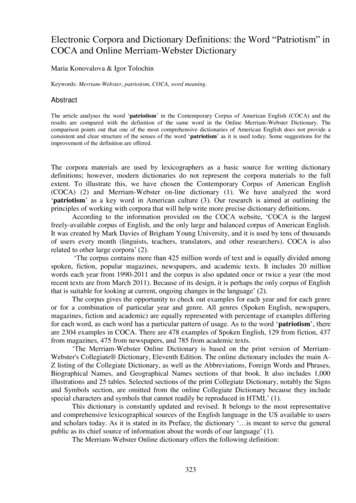
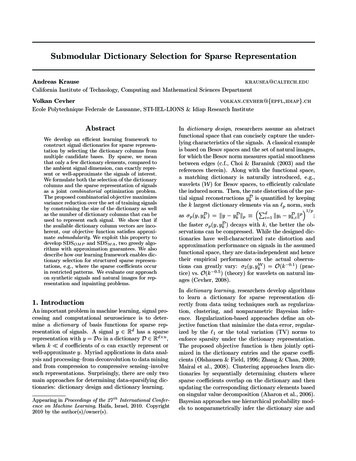
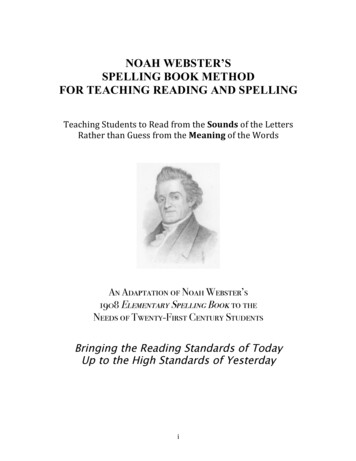

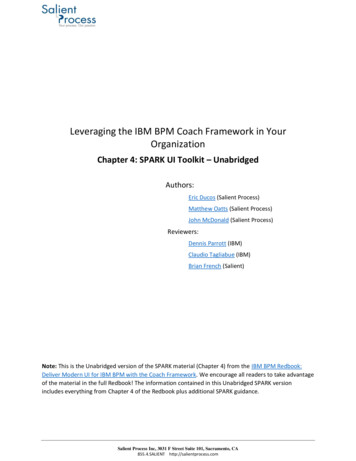

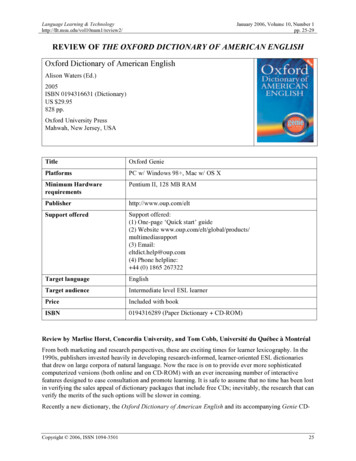
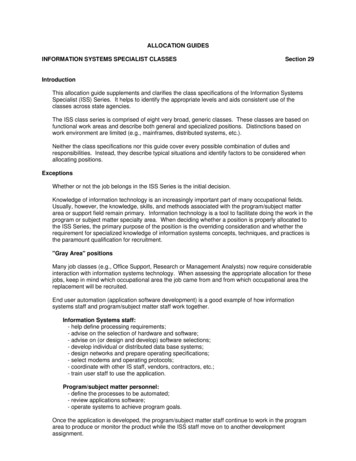
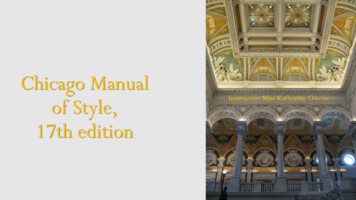
![First Revision No. 1-NFPA 1582-2016 [ Section No. 1.1.2 ]](/img/30/1582-a2017-fix-aaa-fd-frstatements.jpg)